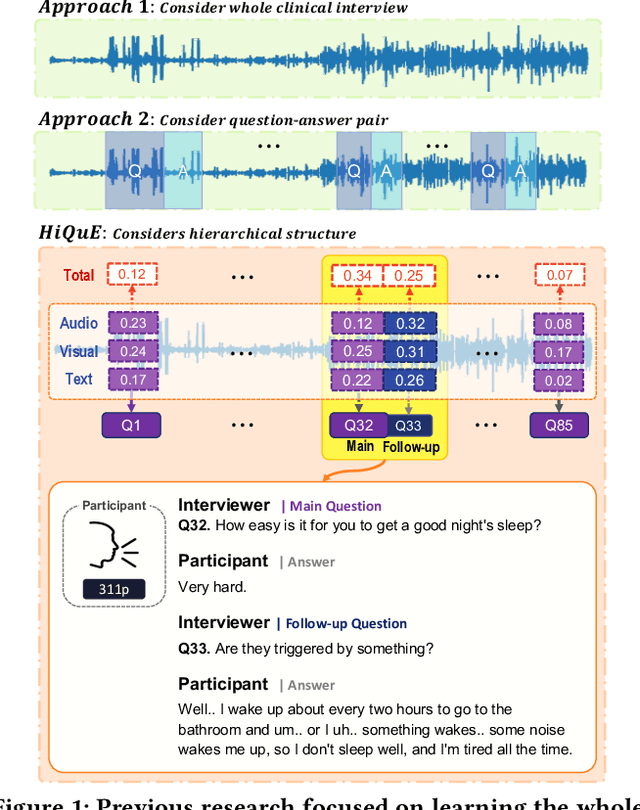Jeewoo Yoon
HiQuE: Hierarchical Question Embedding Network for Multimodal Depression Detection
Aug 07, 2024



Abstract:The utilization of automated depression detection significantly enhances early intervention for individuals experiencing depression. Despite numerous proposals on automated depression detection using recorded clinical interview videos, limited attention has been paid to considering the hierarchical structure of the interview questions. In clinical interviews for diagnosing depression, clinicians use a structured questionnaire that includes routine baseline questions and follow-up questions to assess the interviewee's condition. This paper introduces HiQuE (Hierarchical Question Embedding network), a novel depression detection framework that leverages the hierarchical relationship between primary and follow-up questions in clinical interviews. HiQuE can effectively capture the importance of each question in diagnosing depression by learning mutual information across multiple modalities. We conduct extensive experiments on the widely-used clinical interview data, DAIC-WOZ, where our model outperforms other state-of-the-art multimodal depression detection models and emotion recognition models, showcasing its clinical utility in depression detection.
* 11 pages, 6 figures, Proceedings of the 33rd ACM International Conference on Information and Knowledge Management (CIKM '24)
 Add to Chrome
Add to Chrome Add to Firefox
Add to Firefox Add to Edge
Add to Edge